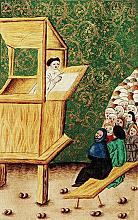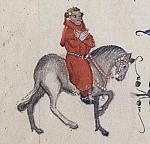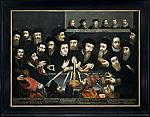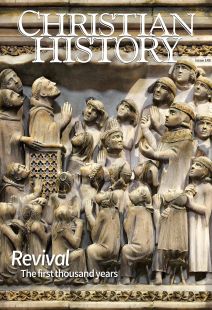Walking in the way of St. Francis
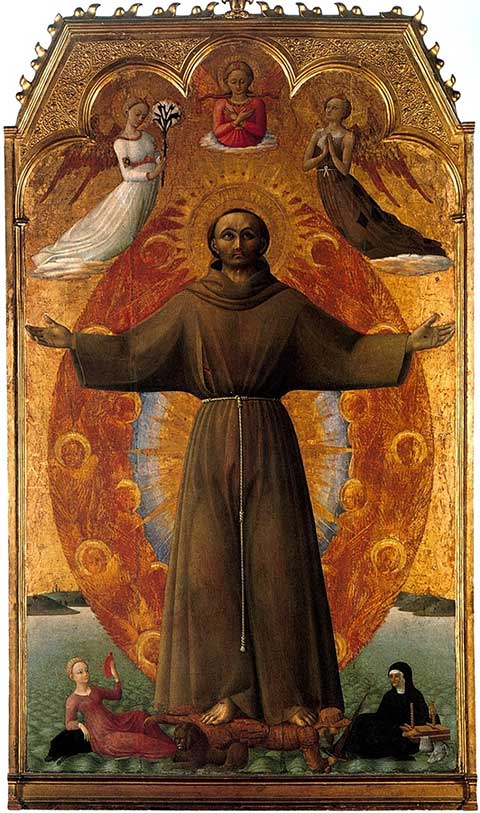
[Stefano di Giovanni (1392–1450) The Ecstasy of Saint Francis—public domain, Wikimedia File:The Ecstasy of st Francis--Sassetta--Bernson collecton--Settignano.jpg]
From Words of Admonition of Our Holy Father St. Francis
I did “not come to be ministered unto, but to minister,” says the Lord. Let those who are set above others glory in this superiority only as much as if they had been deputed to wash the feet of the brothers; and if they are more perturbed by the loss of their superiorship [high rank] than they would be by losing the office of washing feet, so much the more do they lay up treasures to the peril of their own soul.— Admonition 4, “That no one should take superiorship upon himself”
Where there is charity and wisdom there is neither fear nor ignorance. Where there is patience and humility there is neither anger nor worry. Where there is poverty and joy there is neither cupidity [greed] nor avarice [grasping]. Where there is quiet and meditation there is neither solicitude [anxiety] nor dissipation. Where there is the fear of the Lord to guard the house the enemy cannot find a way to enter. —Admonition 27, “Of the virtues putting vices to flight”
From First Rule of the Friars Minor
The Rule and life of these brothers is this: namely, to live in obedience and chastity, and without property, and to follow the doctrine and footsteps of our Lord Jesus Christ, who says: “If thou wilt be perfect, go sell what thou hast, and give to the poor, and thou shalt have treasure in heaven, and come, follow Me.” And: “If any man will come after Me, let him deny himself and take up his cross and follow Me”; in like manner: “If any man come to Me, and hate not his father, and mother, and wife, and children, and brethren and sisters, yea, and his own life also, he cannot be My disciple” “And everyone that hath left father or mother, brothers or sisters, or wife, or children or lands, for My sake, shall receive an hundredfold, and shall possess life everlasting.”—1. “That the brothers ought to live in obedience, without property and in chastity”
Let the brothers . . . not be chamberlains [stewards], nor cellarers [supply managers], nor overseers in the houses of those whom they serve, and let them not accept any employment which might cause scandal, or be injurious to their soul, but let them be inferior [subordinate] and subject to all who are in the same house. And let the brothers who know how to work, labor and exercise themselves in that art they may understand, if it be not contrary to the salvation of their soul. . . . And for their labor they may receive all necessary things, except money. And if they be in want, let them seek for alms like other brothers. . . . Let the brothers take care that wherever they may be, whether in hermitages or in other places, they never appropriate any place to themselves, or maintain it against another. And whoever may come to them, either a friend or a foe, a thief or a robber, let them receive him kindly. And wherever the brothers are and in whatsoever place they may find themselves, let them
spiritually and diligently show reverence and honor toward one another without murmuring. And let them take care not to appear outwardly sad and gloomy like hypocrites, but let them show themselves to be joyful and contented in the Lord, merry and becomingly courteous.—7. “Of the manner of serving and working”
By Francis of Assisi
[Christian History originally published this article in Christian History Issue #149 in 2023]
All translations by Paschal Robinson, The Writings of St. Francis of Assisi (1905)Next articles
Winds of spiritual renewal
Mystics looked inward to revive and renew the love of christ
Glenn E. MyersFirst, preach Christ’s gospel
Many medieval preachers intended their sermons to renew and revive
Beth Allison BarrDormant and exploding volcanos
Revivals kept breaking out in the Reformation—but sometimes when people didn’t want them to
Edwin Woodruff Tait




